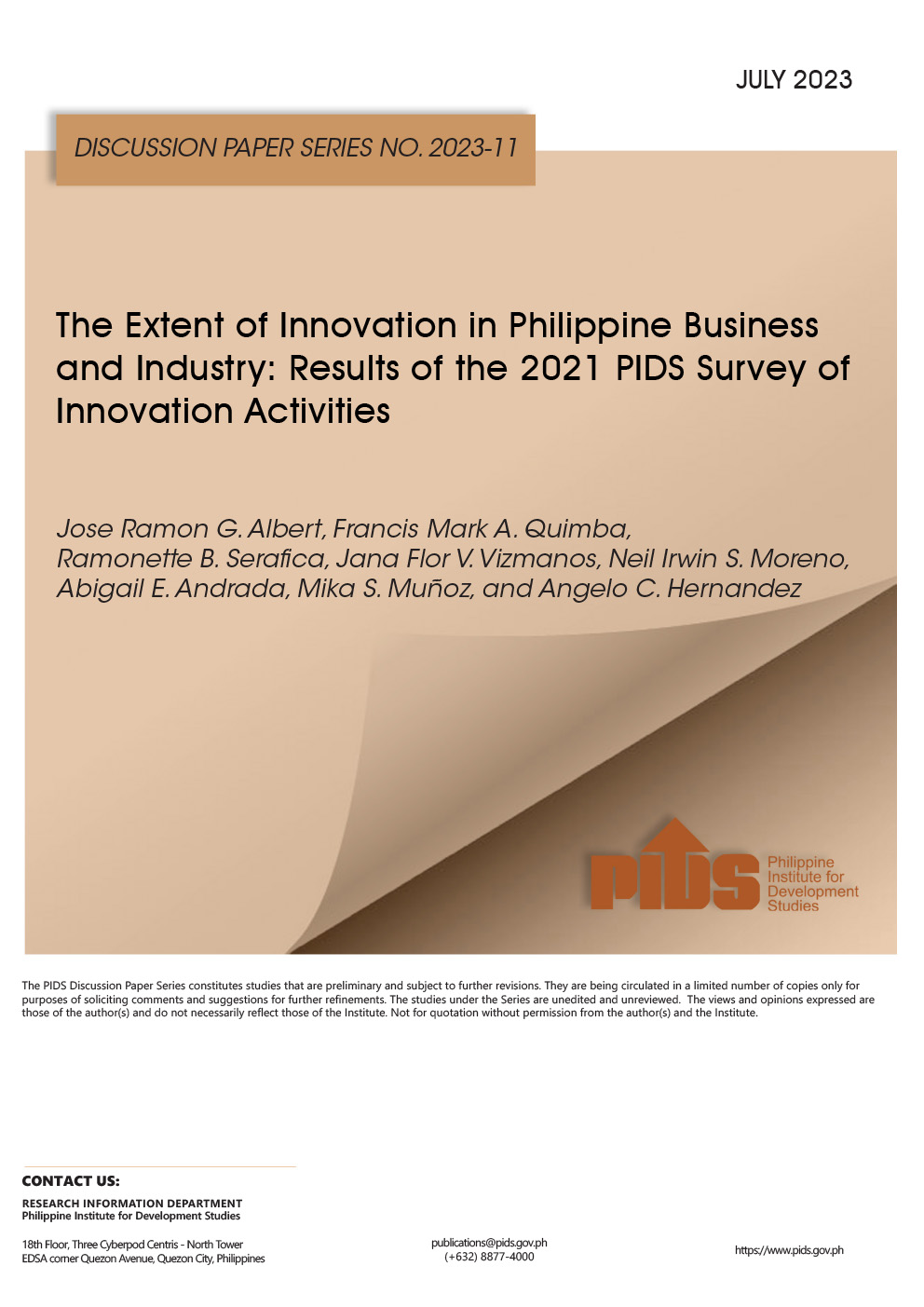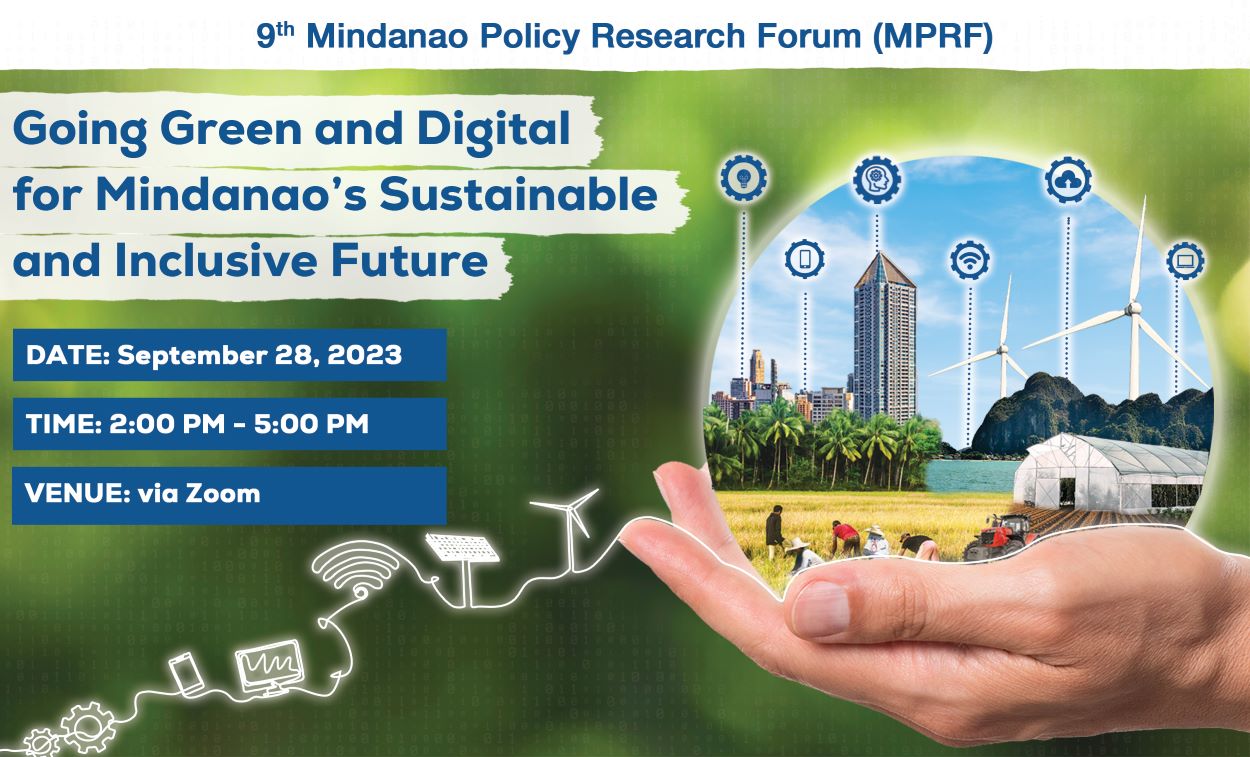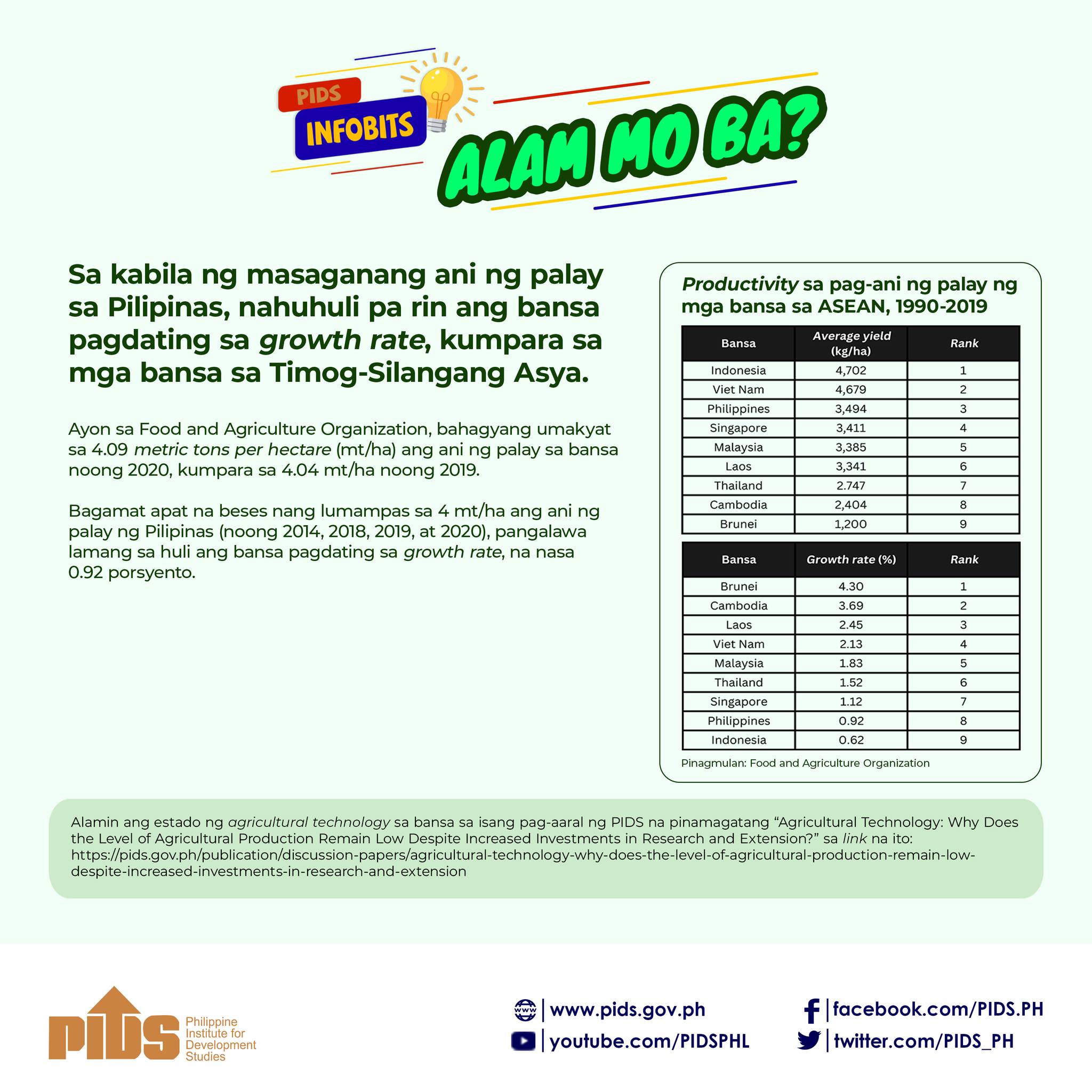
Small and medium enterprises (SMEs) in the Philippines need to undergo digital transformation to harness the benefits of technological developments under the New Globalization.
This was emphasized by Dr. Alfredo Pascual, president of the Institute of Corporate Directors, who served as a speaker at the Fifth Annual Public Policy Conference (APPC) conducted by state think tank Philippine Institute for Development Studies (PIDS) this year.
“To be able to tap business opportunities in the evolving digital economy, digital transformation is key. This must be done, or else, a company will be left behind,” Pascual explained.
“The most successful businesses are the ones that constantly evolve and reinvent themselves to keep pace with advances in the outside world,” he added, warning that businesses are under threat because of new and emerging technologies.
The former University of the Philippines president and PIDS trustee pointed out that digital transformation will help businesses appreciate the importance of using their data, or ‘datafication’, in improving their marketing, operations, performance, and research and development.
Speaking at the same conference, Department of Foreign Affairs Undersecretary for International Economic Relations Lourdes Yparraguirre urged SMEs to innovate, which she says is a “critical factor for production”.
“The ability to innovate will become—more than ever—an important element of economic development,” Yparraguirre said.
Pascual noted that while bigger firms in the country have already embraced digital transformation, SMEs led by “younger, more dynamic, and tech-savvy entrepreneurs are following closely”, citing the growing Philippine start-up community as an example.
However, SMEs, in general, face a number of challenges that make it difficult for them to keep up with big corporations.
“Opportunities for SMEs are tremendous, but many are limited by their ability to grow because of lack of access to finance, business services, and information, and constrained access to markets beyond their immediate neighborhood,” Pascual explained.
Because of this, he urged SMEs to use existing digital market places and online services to help them connect not only with local customers but with regional and global markets as well. However, these areas also need improvement, according to Pascual.
One major issue to resolve is the expensive and slow internet connection in the country. Pascual said that improving the competition among internet service providers “could help lower prices and increase bandwidth speed”.
He also mentioned the need to strengthen the digital skills of Filipinos as well as expand their use of digital payments.
More importantly, Pascual urged the government to “lead by example and become more digital themselves”.
Started in 2015, the APPC is the culminating activity of the Development Policy Research Month, a nationwide celebration every September to highlight the importance of research evidence in policy and decisionmaking in the country. This year’s conference, which carried the theme “Navigating the New Globalization: Local Actions for Global Challenges”, was organized by state think tank Philippine Institute for Development Studies in partnership with the Bangko Sentral ng Pilipinas, Department of the Interior and Local Government, National Economic and Development Authority, Department of Foreign Affairs, Philippine Competition Commission, Department of Trade and Industry, and Asian Development Bank. It was attended by over 400 representatives from the government, private sector, academe, and civil society. ###
This was emphasized by Dr. Alfredo Pascual, president of the Institute of Corporate Directors, who served as a speaker at the Fifth Annual Public Policy Conference (APPC) conducted by state think tank Philippine Institute for Development Studies (PIDS) this year.
“To be able to tap business opportunities in the evolving digital economy, digital transformation is key. This must be done, or else, a company will be left behind,” Pascual explained.
“The most successful businesses are the ones that constantly evolve and reinvent themselves to keep pace with advances in the outside world,” he added, warning that businesses are under threat because of new and emerging technologies.
The former University of the Philippines president and PIDS trustee pointed out that digital transformation will help businesses appreciate the importance of using their data, or ‘datafication’, in improving their marketing, operations, performance, and research and development.
Speaking at the same conference, Department of Foreign Affairs Undersecretary for International Economic Relations Lourdes Yparraguirre urged SMEs to innovate, which she says is a “critical factor for production”.
“The ability to innovate will become—more than ever—an important element of economic development,” Yparraguirre said.
Pascual noted that while bigger firms in the country have already embraced digital transformation, SMEs led by “younger, more dynamic, and tech-savvy entrepreneurs are following closely”, citing the growing Philippine start-up community as an example.
However, SMEs, in general, face a number of challenges that make it difficult for them to keep up with big corporations.
“Opportunities for SMEs are tremendous, but many are limited by their ability to grow because of lack of access to finance, business services, and information, and constrained access to markets beyond their immediate neighborhood,” Pascual explained.
Because of this, he urged SMEs to use existing digital market places and online services to help them connect not only with local customers but with regional and global markets as well. However, these areas also need improvement, according to Pascual.
One major issue to resolve is the expensive and slow internet connection in the country. Pascual said that improving the competition among internet service providers “could help lower prices and increase bandwidth speed”.
He also mentioned the need to strengthen the digital skills of Filipinos as well as expand their use of digital payments.
More importantly, Pascual urged the government to “lead by example and become more digital themselves”.
Started in 2015, the APPC is the culminating activity of the Development Policy Research Month, a nationwide celebration every September to highlight the importance of research evidence in policy and decisionmaking in the country. This year’s conference, which carried the theme “Navigating the New Globalization: Local Actions for Global Challenges”, was organized by state think tank Philippine Institute for Development Studies in partnership with the Bangko Sentral ng Pilipinas, Department of the Interior and Local Government, National Economic and Development Authority, Department of Foreign Affairs, Philippine Competition Commission, Department of Trade and Industry, and Asian Development Bank. It was attended by over 400 representatives from the government, private sector, academe, and civil society. ###











